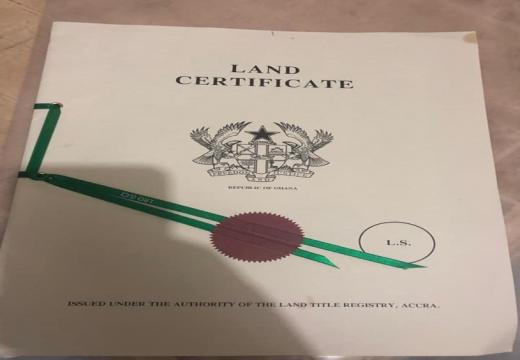

If you're a home buyer in Ghana, you'll likely come across the term "leasehold" as you navigate the real estate market. Leasehold is a type of land tenure that grants the holder a temporary right to use and occupy the land for a specified period.
In Ghana, residential lands were sold and registered as freehold to citizens but that has now changed to leasehold arrangements in the country. Leasehold arrangements are common in many parts of the world, including Ghana, and are often used for residential and commercial development, agriculture, and industrial production.
In this article, I'll break down the basics of leasehold interests and what they mean for Ghanaian home buyers. By reading along, you'll better understand what a leasehold is and how it fits into the broader landscape of real estate in Ghana.
Leasehold is a type of land tenure that grants the holder a temporary right to use and occupy the land for a specified period. For residential purposes, usually a maximum of 99 years for citizens and 50 years for non-citizens.
One of the key benefits of a leasehold is that it allows individuals or organizations to use and develop land without having to purchase it outright. This can be particularly attractive for those who are looking to establish a long-term presence on the land but may not have the financial resources to purchase it outright.
However, leasehold arrangements also come with certain limitations and risks. For example, leasehold holders may be subject to restrictions on the use of the land and may need to obtain the consent of the landlord before making certain types of changes or improvements.
Additionally, leasehold arrangements are typically for a limited period, and may not be renewable or extendable, depending on the terms of the lease.
For home buyers in Ghana, understanding leases is crucial because it can impact your decision-making when it comes to buying property in Ghana. For example, if you're considering purchasing a property that is currently being leased, you'll need to know the details of the lease agreement and how it may affect your ownership of the property.
But how exactly does this leasehold work, and what does it mean for you as a buyer? A land lease is a legal agreement between two parties, typically a landlord and a tenant. The lease outlines the terms and conditions of the rental arrangement, such as the rent amount, the length of the lease, and any restrictions on the use of the landed property.
At the end of the lease term, the tenant typically has the option to renew the lease or move out of the property. If the tenant decides to move out, they may be required to give notice to the landlord and leave the property in good condition.
Without issuing a lease that is older than the initial leasehold period, the leaseholder may sublease the land to a third party under circumstances established in the leasehold. Overall, a lease provides a framework for a landlord and tenant to establish a rental relationship that is mutually beneficial and clearly defined.
If you are considering entering into a leasehold arrangement, it is important to carefully review the terms of the lease agreement and to seek the advice of a legal or financial professional to ensure that you fully understand your rights and obligations as a leasehold holder.
It is therefore important to note that this outline is just a general guide, and the final lease agreement should be tailored to the specific needs and circumstances of the parties involved. It is always advisable to seek legal advice when drafting a lease agreement.
It is important to note that the laws regarding interests in land can vary from jurisdiction to jurisdiction. If you have questions about the types of interests in land, it is advisable to consult with a local attorney or real estate professional. Here are some of the most common types of land titles in Ghana:
1 . Allodial interest: This interest in the land refers to a form of land ownership in which the land is owned outright, without any obligation to pay taxes or other fees to a higher authority. Essentially, it means that the land is completely free and clear of any encumbrances or obligations, and the owner has complete and absolute control over it. In Ghana, these lands belong to Kings, Chiefs, Clans, and Tendanba.
2. Freehold interest: Freehold interest in the land refers to the ownership of land, which includes both the surface of the land and the minerals and resources underneath it. Freehold ownership is often seen as the highest form of land ownership, as it grants the owner the right to use, occupy, and sell the land. In Ghana, freehold interest is subdivided into forms; Customary law freehold and Common law freehold.
3. Leasehold: This is an interest in land that is created when one party (the landlord) grants another party (the tenant) the right to use and occupy the land for a specific period. The tenant pays rent to the landlord in exchange for the right to use the land.
4. Usufructuary interest: This is a type of property interest in which a person (the usufructuary) is granted the right to use and enjoy property or asset for a certain period, without actually owning the property or asset itself. The owner of the property or asset is known as the bare owner.
5. Customary tenancy: This is an interest in land that is created by contract. This interest arises when a stool or skin, or clan or family which holds the allodial title or a person who holds a customary law freehold or usufructuary interest agrees with another person to grant that other person an interest in the land upon agreed terms and conditions.